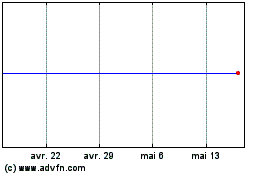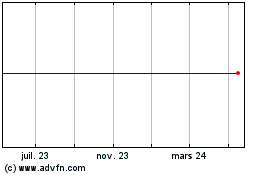Hearing Is Under Way. Here's What to Expect.
25 Mars 2021 - 5:35PM
Dow Jones News
By John D. McKinnon
The hearing with Facebook's Mark Zuckerberg, Twitter's Jack
Dorsey and Alphabet's Sundar Pichai is under way with opening
statements.
The hearing is sure to spotlight Democratic lawmakers' outrage
over the storming of the Capitol by supporters of former President
Trump on Jan. 6, and the role of social media. But it's also likely
to highlight the difficulties of taking legislative action.
Exhibit A: Rep. Jan Schakowsky (D., Ill.), a key subcommittee
chair at today's hearing, has been working for more than a year on
measures to reform the federal law that protects online
platforms--a law that many lawmakers blame for the proliferation of
hate speech and misinformation.
The law, known as Section 230, gives the platforms sweeping
legal protection for the words and actions of their users. It also
gives the platforms wide latitude to police their sites--or not
police them. The companies say the law, passed in the 1990s at the
dawn of the internet age, is crucial to the online ecosystem's
smooth operation. Smaller companies say it's especially important
to them, and to competition. They've generally fought hard to limit
or block changes to the law.
Beyond that, there's the First Amendment to worry about. Forcing
companies to take any specific actions to restrict hate speech on
their platforms could run into big constitutional barriers.
This item is part of a Wall Street Journal live coverage event.
The full stream can be found by searching P/WSJL (WSJ Live
Coverage).
(END) Dow Jones Newswires
March 25, 2021 12:20 ET (16:20 GMT)
Copyright (c) 2021 Dow Jones & Company, Inc.
Twitter (NYSE:TWTR)
Graphique Historique de l'Action
De Juin 2024 à Juil 2024

Twitter (NYSE:TWTR)
Graphique Historique de l'Action
De Juil 2023 à Juil 2024

Real-Time news about Twitter Inc (New York Stock Exchange): 0 recent articles
Plus d'articles sur Twitter Inc